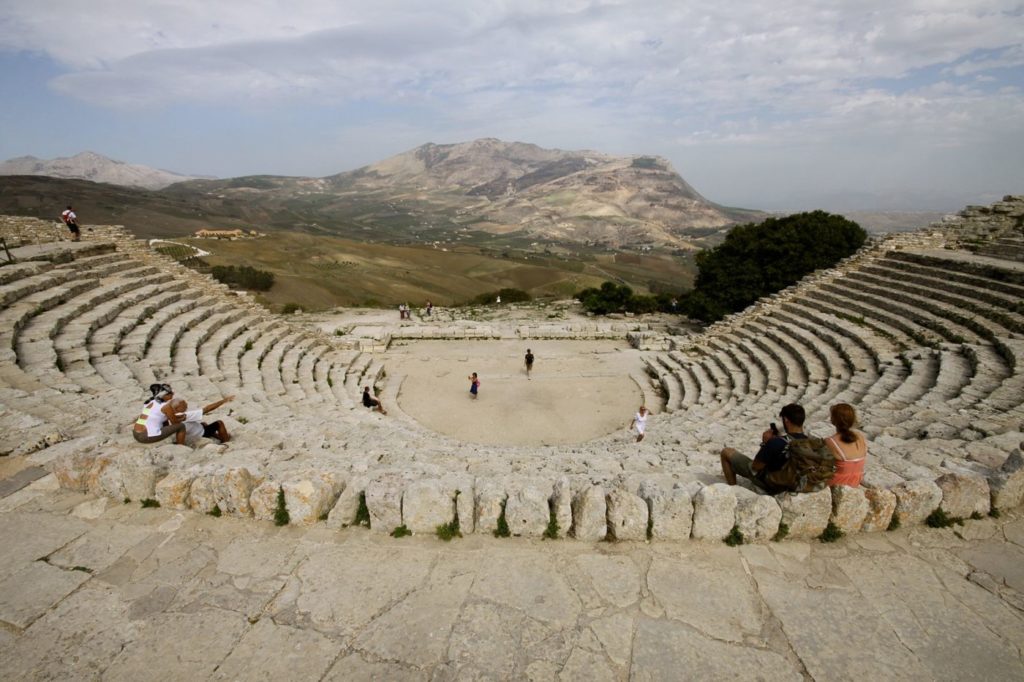
Photo credit: Matthias Süßen
Back in Ancient Greece, attending the theatre was not just a source of entertainment but a civic duty. Citizens would be paid a full day’s wages to go to theatre and see the consequences characters’ dealings with the ethical, moral, and spiritual issues of the day. Politicians would even be satirised, although the powers in Athens were adamant that criticism of the city should be reserved for audiences of Athenian citizens to preserve respect from outsiders.
In today’s divided political climate, it seems that society could benefit from seeing the consequences of their actions played out in a fictional scenario, but is this civic development really the responsibility of creatives?
Many people go to the theatre for an uplifting evening of escapism from their day-to-day responsibilities, and turning the industry too ancient Greek may lead to a sharp decline in audience numbers. However, whilst many would cite television as a relaxing pastime, it will often show characters dealing with difficult scenarios with the intention of supporting and educating viewers in a similar situation.
The practice of using a removed scenario, whether historically or geographically, to explore contentious issues is nothing new. Shakespeare famously found safety in Danish and Italian settings to prevent accusations of criticising any powerful individuals in society at the time. In the age of free speech, it seems that there is no excuse for not providing a platform for work provoking reflection on current affairs.
Often platforms are readily available, but the problem lies in attracting the right audiences. Not many people would want to spend their evening off being confronted with a play whose underlying message aggressively contradicts their whole belief system. Furthermore, debates provoked would be bland and futile if only audiences who already agreed with a play’s message were in attendance. But presenting a one-sided account of a situation is part of the problem.
Theatre companies such as DV8 do a brilliant job of presenting a broad spectrum of views on a subject, and I am looking forward to see how the National Theatre handles Brexit in My Country: A Work in Progress next year. However, in non-verbatim work it can be very tempting to write or direct a piece that strongly favours one way of responding to an issue, thus alienating many people who could contribute to an interesting, honest conversation on a topic and ultimately preventing progress.
As a result, using events and literature of the past or wholly fictional locations and characters is more important than ever for providing a balanced account of uncomfortable societal issues. Unless theatre is being truly reflective of the breadth and complexity of views on key issues, it is tiptoeing around them rather than doing anything to further debate and promote the cohesion that is desperately needed.
After all, if theatre is supposed to make audiences happy, why not take a leaf out of the ancient Greeks’ book, and expose each of us to views other than our own to create a more empathetic, open and happy climate?
Filed under: Theatre & Dance

Comments